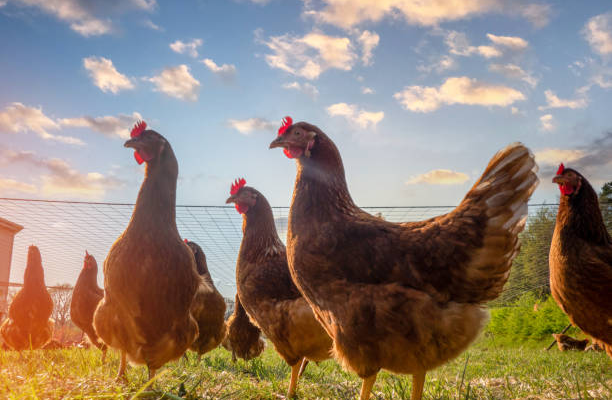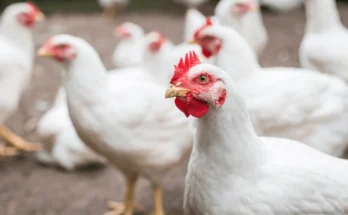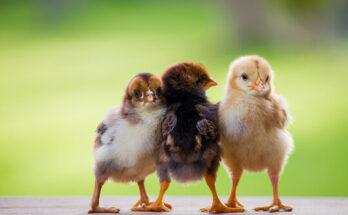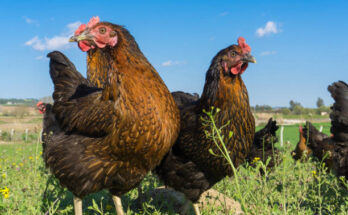Ensuring Optimal Health and Wellness for Your Hens
Keeping hens healthy and happy is vital for your small holding, it is essential that your flock is in good health for optimal egg production. In this blog post, we will explore some important tips and best practices for maintaining the health of your hens. From nutrition and housing to disease prevention and regular check-ups, we will cover everything you need to know to ensure that your feathered friends stay happy and healthy.
Creating a Healthy Environment

Proper Coop Size and Structure
Ensuring that your hens have enough space to move around comfortably is crucial for their overall well-being. The recommended space per hen is about 2-3 square feet inside the coop and a minimum of 8-10 square feet in the outdoor run. Hens that are overcrowded can become stressed, leading to a range of health issues. Additionally, the coop should be structurally sound, providing protection from predators and the elements.
Good Ventilation and Lighting
Proper ventilation is essential for maintaining good air quality within the coop. Adequate ventilation helps to reduce the risk of respiratory diseases and prevents the buildup of harmful ammonia fumes from droppings. Natural light is also important for the hens’ health and egg production. Ensure that the coop has windows or vents that can be opened to allow fresh air to circulate, and consider incorporating artificial lighting to supplement natural daylight, especially during the shorter days of winter.
Cleanliness and Hygiene Practices
Maintaining a clean and hygienic environment is vital for keeping your hens healthy. Regularly removing soiled bedding, droppings, and leftover food helps to prevent the spread of diseases and pests. Consider using materials such as straw or wood shavings for bedding, as they are absorbent and easier to clean. Additionally, regularly disinfecting the coop and nesting boxes can help control the spread of bacteria and parasites, ensuring a healthier living space for your hens. Regular cleaning also allows for early detection of any signs of illness or injury among the flock.
Nutritious Diet for Hens

Essential Nutrients
A nutritious diet is crucial for keeping hens healthy and productive. Essential nutrients for hens include protein, carbohydrates, fats, vitamins, and minerals. Protein is particularly important for egg production and feather development. Calcium is vital for strong eggshells, while vitamin D aids in calcium absorption.
Balanced Feed Options
Providing a balanced feed is essential for meeting the nutritional needs of hens. Commercially available layer feeds are formulated to provide the necessary balance of nutrients for laying hens. These feeds typically contain a blend of grains, protein sources, vitamins, and minerals. Additionally, supplementing with fresh greens and kitchen scraps can add variety to their diet.
Importance of Fresh Water
Fresh, clean water is vital for the health of hens. Water is essential for digestion, temperature regulation, and overall well-being. Ensure that water sources are regularly cleaned and free from contamination. During hot weather, hens may consume more water, so it’s important to monitor and replenish water sources frequently. Clean water is one of the most important factors in keeping hens healthy.
Health Monitoring and Disease Prevention
Regular health checks are essential for ensuring the well-being of your hens. Conducting routine examinations allows you to detect any signs of illness or distress at an early stage, enabling prompt intervention and treatment. When inspecting your hens, pay attention to their overall appearance, behavior, and the condition of their feathers. Assess their body weight, comb color, and the quality of their droppings. Any abnormalities should be promptly addressed to maintain their health.
Parasite Control
Parasites can pose a significant threat to the health of your hens. Implement a regular parasite control program to prevent infestations. This may involve using appropriate deworming treatments and providing access to clean and dry bedding to minimize the risk of mite and lice infestations. Additionally, maintaining a clean and well-ventilated coop can help reduce the risk of parasitic infections and ensure the overall health of your flock. Regularly inspecting your hens for signs of parasites is crucial for early detection and intervention.
Exercise and Free-Range Opportunities

When it comes to keeping hens healthy and happy, providing opportunities for exercise and free-range activities is crucial. Allowing your hens to engage in natural behaviors like scratching, pecking, and foraging not only keeps them physically fit but also contributes to their mental stimulation and overall well-being. By creating an environment that mimics their natural habitat, you are promoting their natural instincts, which can lead to lower stress levels and happier hens.
Benefits of Free-Range Access
Giving your hens access to free-range opportunities offers a plethora of benefits. It allows them to soak up vitamin D from the sun, which is essential for strong and healthy eggshells. Additionally, free-range access enables hens to consume a diverse range of insects, plants, and seeds, resulting in a more nutritious diet and enhanced immune system. This freedom to roam also reduces aggression amongst the flock, leading to a more harmonious and less stressed environment.
Providing Adequate Space
Ensuring that your hens have ample space to exercise and roam freely is vital for their physical and emotional well-being. In a free-range environment, each hen should have a minimum of 4 square feet of space to move around comfortably. The availability of space is directly linked to their ability to engage in natural behaviors and prevents overcrowding, which can lead to aggression and stress among the flock. A spacious and well-organized living environment contributes to healthier, more contented hens.
Conclusion
In conclusion, maintaining the health of your hens is vital for their well-being and productivity. By providing a balanced diet, clean living conditions, regular health check-ups, and appropriate space for exercise, you can ensure that your hens stay healthy and happy. Additionally, implementing biosecurity measures and promptly addressing any signs of illness or distress can help prevent the spread of diseases and maintain a thriving flock. Prioritizing the health of your hens not only benefits them but also contributes to the overall success of your poultry operation. Hopefully, this guide helps you in keeping hens healthy and productive for your small hold! You can read out article on how to ensure your keeping hens healthy and happy here, to maximise egg production.



